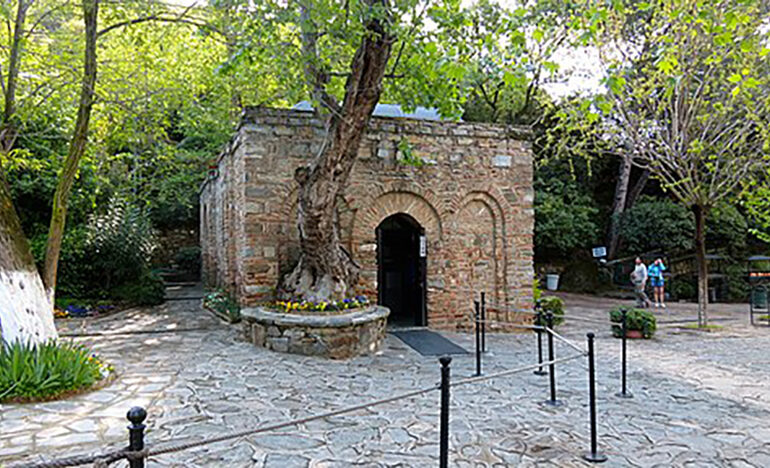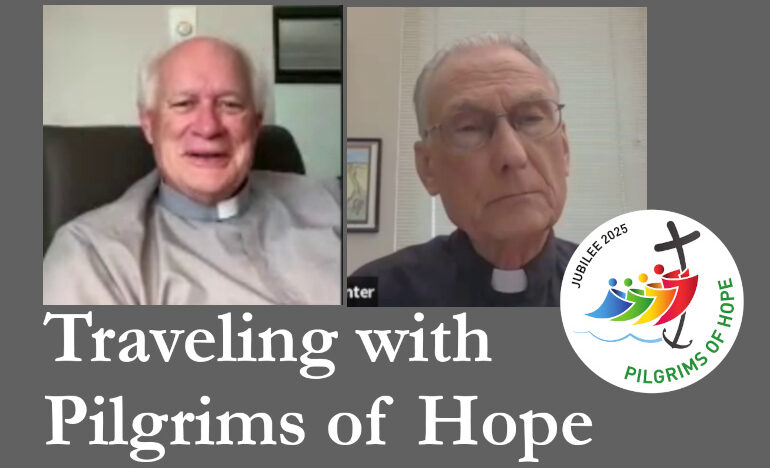What Islam teaches about Mary

A couple years ago, Jesuit Fr. Francis X. Clooney, a professor of divinity at Harvard University, wrote a series of articles in America magazine exploring Islam in general and the Quran in specific. He did this to help combat what he called “dangerous ignorance” about another faith tradition.
He called the series “A Catholic Reads the Quran.” About the series, he wrote that it would be good if “we who are not Muslim educate ourselves on these matters, resist caricatures of Muslims and be open, ideally, also entering into conversation with Muslim neighbors likewise open to studying the Bible.”
The fifth of Clooney’s articles was headlined: “What Islam really teaches about the Virgin Mary.” I’d encourage you to read the piece in full. To entice you, here are some highlights
Clooney notes that “Mary is the only woman named in the Quran; while most such named figures are prophets, there is debate about Mary’s status, some listing her among the prophets, others preferring to say that she is ‘an exceptionally pious woman with the highest spiritual rank among women.’ ”
A ‘sura’ is a chapter in the Quran. Sura 5 (The Table Spread), which describes Jesus as “Messiah” and “messenger” in language that echoes — according to commentaries Clooney cites — the description of the Prophet Mohammed in Sura 3:144, describes Mary as “truthful.” Clooney says, “That Mary was ‘truthful’ places her in the company of the prophets; she is the one who testifies to ‘the truth of Jesus’ prophethood and message.’ “
“I need not deny that other passages diverge further from Christian faith, yet without disrespect for Mary and Jesus,” Clooney writes.
Sura 19 is devoted to Mary (or Maryam in Arabic). It relates a tale of desperation followed by Mary’s experience of compassion. Clooney writes that Sura 19 “recounts again the story of Mary and how she came to give birth to Jesus.” In this account, unlike the Christian scriptures, Mary is exiled in the desert and alone – there is no Joseph for support. Clooney writes:
“She is again alone and bereft, and cries out in words that refugees worldwide may be tempted to use even today: ‘Would that I had died before this and was a thing forgotten, utterly forgotten!’ (19:23) The angel shows her the running water and date palm tree that Lord has provided for her, and she survives.”
When she returns from exile with her child, it is Jesus who defends her from gossiping neighbors.
Clooney points to commentaries that say, “Jesus speaks … ‘to absolve his mother of any blame or suspicion,’ that is to say: to be a prophet (even today), is to speak up on behalf of the excluded, downtrodden, helpless.”
Clooney has much more in his essay, but his conclusion is that “Mary can even today be a powerful protector and nurturer of Muslim and Christian unity.”
To celebrate our shared devotion to Mary, Precious Blood Renewal Center and The Dialogue Institute of Kansas City are hosting the program “Mother Mary in Catholicism and Islam” Oct. 9, 6-8:30 p.m. The evening will include presentations by Muslim and Catholic scholars and dinner.
Speakers will cover three topics:
- “Divine Mother, Divine Mover” Michael J. Sanem will present the Catholic view of Mary through the lens of a spirituality of pilgrimage.
- “Mary and the Calling to Motherhood” Dr. Sofia Khan will discuss the high level of dignity and respect given to a mother in Islam in the light of Quran and Sunnah, which is the traditional customs and practices of the Islamic community.
- “Lessons from Mary for Today” Uma Geyik will draw an analogy between the persecution of mothers and the children in Turkey today to the hardships and social ostracization endured by Mary and her Son.
Learn more about the program or register to attend here.
The photo above was taken in Ephesus, Turkey. The building, according to tradition is the house Mary lived in after Jesus death and resurrection. It is an important pilgrimage site for Christians and Muslims. The phot is by Erik Cleves Kristensen [CC BY 2.0 (https://creativecommons.org/licenses/by/2.0)]
Related

Do You Hear What I Hear?
By Fr. Garry Richmeier, C.PP.S.
How can we avoid the harmful affects of the polarization that characterizes so much of our lives these days? One step toward this end is to cultivate a greater understanding and appreciation for the idea of relativity in human behavior.

Pilgrims of Hope, Episode 9: Walking with Deacons of Hope
In this episode, Fr. Ron Will talks with Deacon Kevin Cummings from the Kansas City, Kansas, archdiocese. He and a fellow deacon founded the organization Deacons of Hope, a parish-based, nonprofit, pro-life ministry for permanent deacons.
Categories
Assembling God's Puzzle Coffee with Padre Cooking & Spirituality Encounters of the 4th Kind Family Matters Reflections on the Eucharsitic Prayers Spiritual Resources Taize Prayers The Contemplative Life Traveling with Pilgrims of Hope Uncategorized Videos Week of Prayer for Christian Unity When you need a little help
